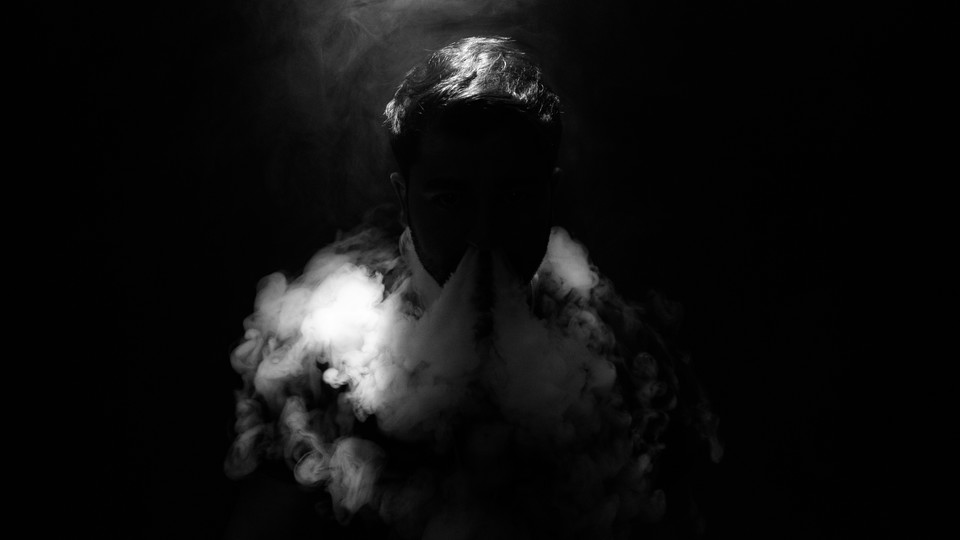How online graduate programs recruit students
Universities, for their part, also want to ensure that their forays into online programs are consistent with their reputations. Peter Rodriguez, dean of the Jesse H. Jones Graduate School of Business at Rice University, told me of Rice’s online M.B.A., “This is the first online degree at Rice University, [so branding] is a big concern. You want to handle it well as you march into this new territory.”
6 sneaky ways coupons and sales actually make you spend more money
"The thrill of using a coupon and getting a better deal than other consumers takes precedence and shoppers lose sight of the actual cost," Utpal Dholakia, a professor of marketing at Rice University, wrote in Psychology Today.
Crystal Clear
Can a new research approach clean up your data?


Based on research by Wagner Kamakura and Rex Y. Du
Can A New Approach Clean Up Your Data?
- Spotting trends is indispensable for marketers trying to discern shifts in consumer tastes and behaviors.
- Trendspotting can take two approaches: qualitative, which analyzes large shifts in consumer wants, or quantitative, which tracks multiple indicators such as keyword searches or tweets.
- Researchers who use quantitative methods can identify structural shifts in longitudinal data and distill seasonal from non-seasonal or dynamic trends.
Every business wants to read consumers’ minds: what they love, what they hate. Even more, businesses crave to know about mass trends before they’re visible to the naked eye.
In the past, analysts searching for trends needed to pore over a vast range of sources for marketplace indicators. The internet and social media have changed that: Marketers now have access to an avalanche of real-time indicators, laden with details about the wishes hidden within customers’ hearts and minds. With services such as Trendistic (which tracks individual Twitter terms), Google Insights for Search and BlogPulse, modern marketers are even privy to the real-time conversations surrounding consumers’ desires.
Now, imagine being able to analyze all this data across large panels of time – then distilling it so well that you could identify marketing trends quickly, accurately and quantitatively.
Rice Business professor Wagner A. Kamakura and Rex Y. Du of the University of Houston set out to create a model that makes this possible. Because both quantitative and qualitative trendspotting are exploratory endeavors, Kamakura notes, both types of research can yield results that are broad but also inaccurate. To remedy this, Kamakura and Du devised a new model for quickly and accurately refining market data into trend patterns.
Kamakura and Du’s model entails taking five simple steps to analyze gathered data using a quantitative method. By following this process of refining the data tens or hundreds of times, then isolating the information into specific seasonal and non-seasonal trends or dynamic trends, researchers can generate steady trend patterns across time panels.
Here’s the process:
- First, gather individual indicators by assembling data from different sources, with the understanding that the information is interconnected. It’s crucial to select the data methodically, rather than making random choices, in order to avoid subjectively preselecting irrelevant indicators and blocking out relevant ones. Done sloppily, this first step can generate misleading information.
- Distill the data into a few common factors. The raw data might include inaccuracies, which must be filtered out to lower the risk of overreacting or noting erroneous indicators.
- Interpret and identify common trends by understanding the causes of spikes or dips in consumer behavior. It’s key to separate non-cyclical and cyclical changes, because exterior events such as holidays or weather can alter behavior.
- Compare your analysis with previously identified trends and other variables to establish their validity and generate insights. Looking at past performance through the filter of new insights can offer managers important guidance.
- Project the trend lines you’ve identified using historical tracking data and their modeling framework. These trend lines can then be extrapolated into near-future projections, allowing managers to better position themselves and be proactive trying to reverse unfavorable trends and leverage positive ones.
It’s important to bear in mind that the indicators used for quantitative trendspotting are prone to random and systematic errors, Kamakura writes. The model he devised, however, can filter these errors because it keeps them from appearing across different series of time panels. The result: better ability to identify genuine movements and general trends, free from the influence of seasonal events and from random error.
It goes without saying that the information and persuasiveness offered by the internet are inevitably attended by noise. For marketers, this means that without filtering, some trends show spikes for temporary items – mere viral jolts that can skew market research.
Kamakura and Du’s model helps sidestep this problem by blending available historical data analysis, large time panels and movements while avoiding errors common to more traditional methods. For managers longing to glimpse the next big thing, this analytical model can reveal emerging consumer movements with clarity – just as they’re becoming the future.
(For the mathematically inclined, and those comfortable with Excel macros and Add-Ins, who want to try trendspotting on their own tracking data, Kamakura’s Analytical Tools for Excel (KATE) can be downloaded for free at http://wak2.web.rice.edu/bio/Kamakura_Analytic_Tools.html.)
Wagner A. Kamakura was Jesse H. Jones Professor of Marketing at Jones Graduate School of Business at Rice University.
To learn more, please see: Du, R. Y. & Kamakura, W. A. (2012). Quantitative trendspotting. Journal of Marketing Research, 49(4), 514-536.
Never Miss A Story
Keep Exploring
HIRING HEADACHES: Austin's stretched labor market poised to get even tighter
Chris Strader has increased starting pay at his North Austin pizza restaurant, instituted and seeded savings accounts as employees…
5 most popular innovation stories in Houston this week
For the sixth year, the University of Houston and Rice University have joined forces to give their student entrepreneurs a program to thrive in. RED Labs and OwlSpark, the two universities' accelerator programs, just concluded their seventh class with a presentation from the companies.
Op-ed: New rules on health reimbursement accounts could lower insurance premiums
New federal rules on the use of health reimbursement accounts (HRAs) by employers, which become effective Jan. 1, 2020, could be a game changer in slowing the growth of health insurance premiums.
TMCx company raises millions, Rice Business launches a podcast, and more Houston innovation news
Rice University's Jones Graduate School of Business, has launched, The Index, a podcast that explores thought-provoking topics and business-related ideas.
What a 'price vocabulary' is, and why companies need one
The next time you visit a Costco warehouse store, observe the price tags. In addition to showing the cost of an item, Costco’s price tags encode unique information. The price endings, such as $8.99 versus $8.97, convey special meanings to the subset of shoppers who are literate in Costco’s price vocabulary.
Eclectic and globally inspired new restaurant brightens up former Aqui space in Montrose
A former writer and journalist, Mitchell completed the Advanced Management Program at Rice's Jesse H. Jones School of Management and spent 14 years in the pharmaceutical industry before attending culinary school at the Art Institute of Houston.
4 things you need to know from the Greater Houston Partnership's annual report as it pertains to innovation
The Princeton Review ranks Rice University and the University of Houston as having among the best entrepreneurship programs in the country.


